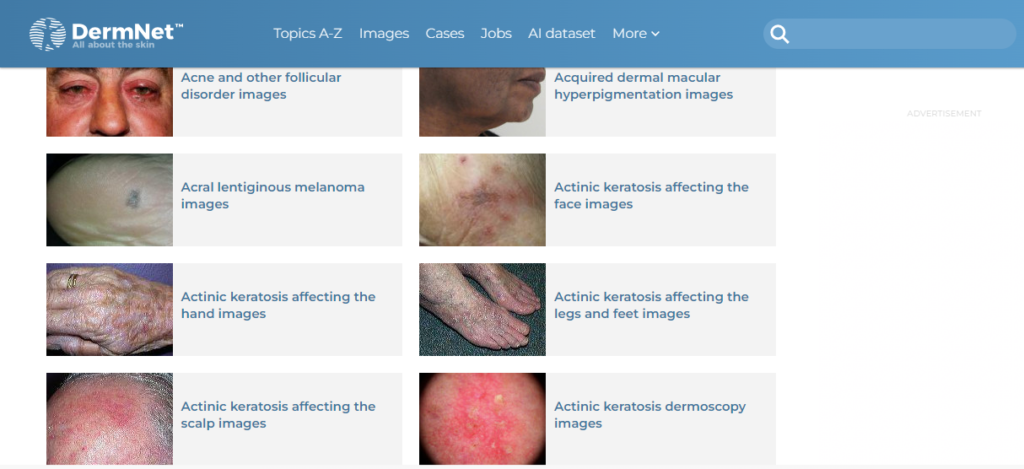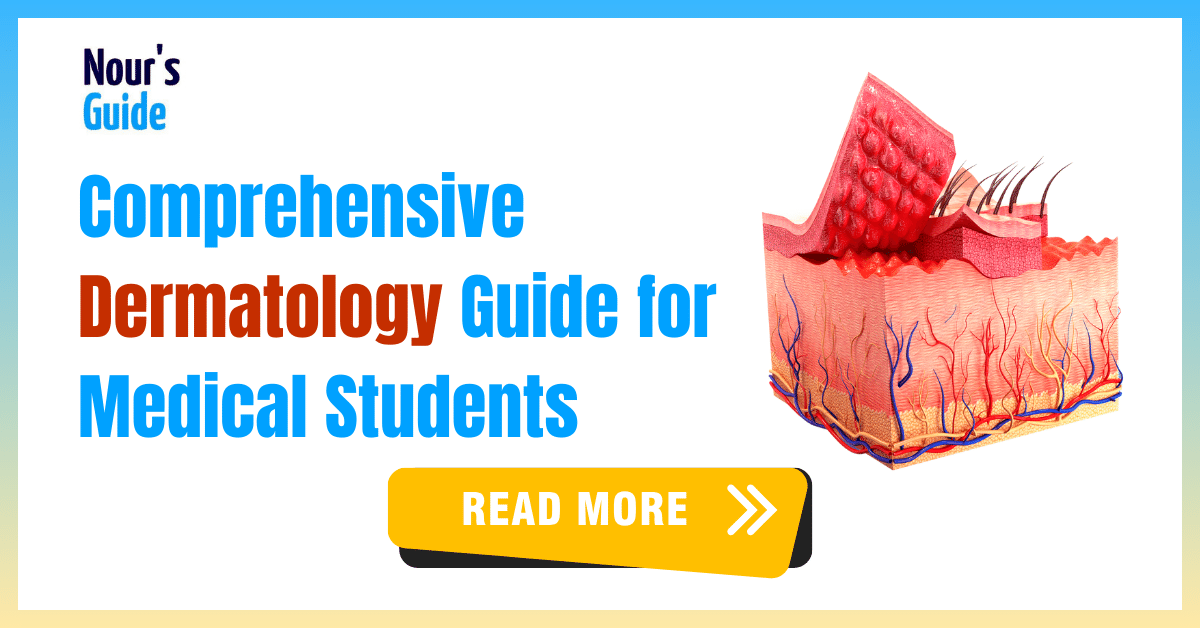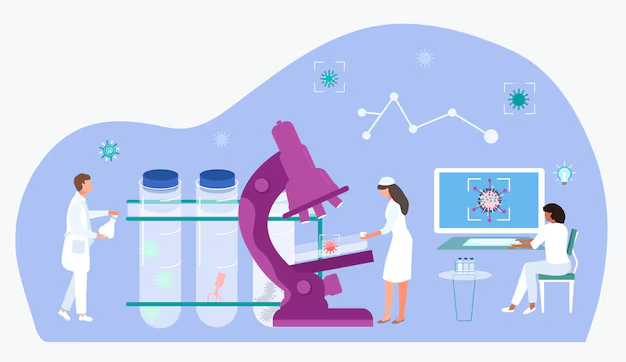Mastering Dermatology: A Comprehensive Guide for Medical Students12 min read
Introduction
Welcome to this comprehensive study guide for medical students aiming to master dermatology. In this blog post, we will delve into the importance of dermatology knowledge for medical students and provide an overview of the essential study resources, effective study techniques, acing dermatology exams, and dermatology career paths. By the end of this guide, you will have a solid understanding of how to excel in the field of dermatology.
Table of Contents
Importance of Dermatology Knowledge for Medical Students
Dermatology is a crucial aspect of medical education as it encompasses a wide range of skin conditions, diseases, and disorders. Proficiency in dermatology is essential for medical students as it enables them to diagnose and treat various dermatological issues, which are prevalent in clinical practice. Furthermore, a strong foundation in dermatology is vital for excelling in medical licensing exams such as the USMLE and for performing well in clinical rotations and OSCE assessments. As previous students experienced.
Essential Derma Study Resources
When it comes to mastering dermatology, having access to the right study resources is paramount. Here are some essential study resources that medical students should consider:
Recommended Textbooks
USMLE:
- First Aid & Kaplan
- Fitzpatrick’s Dermatology, 9th Edition
- Dermatology Essentials by Bolognia, Jorizzo, and Schaffer
- Andrews’ Diseases of the Skin: Clinical Dermatology, 13th Edition
PLAB:
- Dermatology at a Glance by Mahbub M.U. Chowdhury
- ABC of Dermatology by Paul K. Buxton
- Lecture Notes: Dermatology by Rachael Morris-Jones
OSCE:
- Dermatology OSCE Guide by Aisha Ahmad and Anjana Kulkarni
- Dermatology OSCEs: A Revision Guide by Nisha Suyien Chandran
- Dermatology: Illustrated Study Guide and Comprehensive Board Review by Usatine and Smith
General Practice:
- Fitzpatrick’s Dermatology, 9th Edition
- Andrews’ Diseases of the Skin: Clinical Dermatology, 13th Edition
- Dermatology Essentials by Bolognia, Jorizzo, and Schaffer
- Dermatology in General Medicine by Thomas Fitzpatrick
Online Resources

Online resources such as DermNet NZ, Dermapathdiagnostic and VisualDx offer a wealth of information on various skin conditions, accompanied by high-quality images and diagnostic tools. These resources are invaluable for expanding one’s knowledge and understanding of dermatological conditions.
Dermatology Lesions Infographic on Access Medicine is a great resource

Online Dermatology Course:
1. Board & Beyond:
Board and Beyond is a popular resource for medical students preparing for the USMLE Step 1 exam. They have received positive feedback for their comprehensive explanations of dermatology topics, which are particularly helpful for students studying for the exam. Their content is known for being thorough and well-organized, making it easier for students to understand complex dermatological concepts. Overall, Board and Beyond is recognized for their excellent job in providing valuable educational resources for medical students preparing for the USMLE Step 1 exam.
2. Osmosis:
Osmosis is a perfect resource to get accurate medical info the one con is that they don’t cover all the topics in their course.
Mobile Apps
Mobile apps like Dermatology DDX and Derm101 provide quick access to dermatological information, differential diagnoses, and treatment options. These apps are convenient for on-the-go learning and quick reference during clinical rotations.
Journal Articles and Research Papers
Staying updated with the latest research and advancements in dermatology is essential. Accessing journal articles and research papers from reputable sources such as the Journal of the American Academy of Dermatology and Dermatology Journals can provide valuable insights into emerging trends and treatment modalities.
Effective Study Techniques
Mastering dermatology requires effective study techniques that promote deep learning and retention of knowledge. Here are some effective study techniques for excelling in dermatology:
Active Learning Strategies
Engaging in active learning strategies such as using flashcards, practicing with dermatology-specific practice questions, and creating mind maps can reinforce understanding and retention of dermatological concepts.
Utilizing Visual Aids
Visual aids such as clinical images, diagrams, and pathology slides can enhance understanding of different skin conditions and their morphologies. Visual aids provide a visual memory that aids in recalling information during exams and clinical practice.
Hands-on Practice with Clinical Skills
Actively participating in hands-on practice with clinical skills such as conducting skin exams and evaluating lesions is crucial for developing proficiency in dermatology. This practical experience enhances clinical skills and diagnostic abilities.
Time Management and Scheduling Study Sessions
Effective time management and scheduling dedicated study sessions for dermatology are essential. Allocating specific time slots for studying dermatology topics ensures consistent and focused learning, leading to a deeper understanding of the subject matter.
Acing Dermatology Exams
Successfully navigating dermatology exams requires a strategic approach and comprehensive preparation. Here are some tips for acing dermatology exams:
Most Frequently Tested Dermatology Conditions
Understanding the most frequently tested dermatology conditions is crucial for exam success. Conditions such as psoriasis, eczema, acne, dermatitis, and skin infections are commonly featured in medical licensing exams and should be thoroughly understood.
Strategies for Approaching Dermatology-Focused Exam Questions
Developing effective strategies for approaching dermatology-focused exam questions, such as utilizing the process of elimination and critically analyzing clinical scenarios, can enhance performance in dermatology exams.
Common Dermatology-Related USMLE/NBME Exam Topics
Familiarizing oneself with common dermatology-related USMLE/NBME exam topics, including diagnostic criteria, treatment options, and differential diagnoses, is essential for excelling in these exams.
- Skin
- Epithelial Cells
- Skin Disorders I
- Skin Disorders II
- Pigment Disorders
- Vascular Lesions
- Skin Infections
- Blistering Disorders
- Hypersensitivity Disorders
- Skin Cancer
- Neurocutaneous Disorders
Tips for Maximizing Performance on Practical/OSCE Exams
For practical/OSCE exams, practicing comprehensive skin exams, mastering the identification of common skin lesions, and demonstrating proficiency in basic procedures such as skin biopsies and cryotherapy are key to maximizing performance. Consider hiring a tutor if you want to ensure that all your dermatology questions are fully answered.
Dermatology Career Paths
Exploring career paths in dermatology opens up a world of diverse opportunities. Here’s an overview of different dermatology subspecialties and insights into pursuing a career in dermatology:
Overview of Different Dermatology Subspecialties
Dermatology offers various subspecialties including general dermatology, pediatric dermatology, surgical dermatology, and cosmetic dermatology. Each subspecialty presents unique challenges and rewards, catering to different patient populations and conditions.
Pros and Cons of Each Subspecialty
Understanding the pros and cons of each subspecialty is essential for making informed career decisions. General dermatology offers a wide breadth of cases, while surgical dermatology involves procedural skills. Pediatric dermatology focuses on pediatric skin conditions, and cosmetic dermatology involves aesthetic procedures.
Insights into the Daily Work and Responsibilities of Dermatologists
Gaining insights into the daily work and responsibilities of dermatologists, including patient consultations, performing procedures, and staying updated with the latest advancements, provides a realistic view of the profession.
Tips for Getting Involved in Dermatology Research and Academia
For those interested in dermatology research and academia, actively seeking research opportunities, publishing papers, and engaging in scholarly activities during medical school and residency can pave the way for a successful career in dermatology research and academia.
Recap
In conclusion, mastering dermatology as a medical student requires dedication, access to essential study resources, effective study techniques, hands-on clinical practice, and strategic exam preparation. By continuing to build their dermatology knowledge and skills, medical students can excel in this essential field of medicine. We encourage readers to implement the study strategies discussed and continue their journey towards mastering dermatology.
Are you ready to embark on your journey to mastering dermatology? Start by exploring the recommended study resources, incorporating effective study techniques, and gaining practical clinical experience. Your dedication to mastering dermatology will undoubtedly set the stage for a successful career in medicine.
Mastering Clinical Skills in Dermatology
Developing robust clinical skills is paramount for success in the field of dermatology. Beyond textbook knowledge, hands-on practice and clinical exposure are essential for medical students to become proficient in dermatological examinations and procedures.
Comprehensive Skin Examinations
Performing comprehensive skin examinations is a fundamental skill in dermatology. Medical students should familiarize themselves with techniques for conducting a thorough skin assessment, including inspecting the entire body surface, palpating skin lesions, and identifying key dermatological features such as color, texture, and morphology. Regular practice in clinical settings, under the guidance of experienced dermatologists, can hone these essential examination skills.
Identifying Common Skin Lesions and Morphologies
Recognizing and accurately identifying various skin lesions and their morphologies is a crucial competency in dermatology. Medical students should dedicate time to studying the visual characteristics of common skin conditions, such as moles, warts, rashes, and pigmented lesions. Utilizing resources like clinical image libraries and hands-on practice can enhance the ability to differentiate between benign and potentially malignant skin conditions.
Performing Basic Dermatological Procedures
Familiarizing oneself with basic dermatological procedures, such as skin biopsies, cryotherapy, and intralesional injections, can equip medical students with practical skills that are highly valued in the field. Hands-on workshops and supervised clinical experiences provide invaluable opportunities to develop proficiency in these procedures, which are commonly encountered in various dermatological settings.
Dermatology USCE:
If you are interested in gaining in-depth knowledge of dermatology and obtaining strong Letters of Recommendation from top physicians, consider applying for a United States Clinical Experience (USCE). We have created a comprehensive guide on how to secure a USCE opportunity.
Developing a Holistic Approach to Dermatology
Excelling in dermatology requires a multifaceted approach that encompasses not only medical knowledge but also a deep understanding of the psychological, social, and lifestyle factors that impact skin health.
Addressing Psychosocial Aspects of Skin Conditions
Many skin conditions can have significant psychosocial implications for patients, affecting their self-esteem, quality of life, and overall well-being. Medical students should be equipped to recognize and address the emotional and mental health aspects of dermatological diseases, such as the impact of chronic conditions like acne, eczema, or vitiligo. Developing empathy, communication skills, and a patient-centered approach can enable effective management of the psychosocial aspects of skin health.
Considering Lifestyle and Environmental Factors
Dermatological conditions can be influenced by various lifestyle and environmental factors, such as diet, sun exposure, stress levels, and occupational exposures. Medical students should be trained to consider these factors when evaluating and treating skin conditions, as they can play a crucial role in the prevention, management, and overall well-being of patients.
Interdisciplinary Collaboration in Dermatology
Effective dermatological care often requires collaboration with other medical specialties, such as oncology, rheumatology, and internal medicine. Medical students should understand the importance of interdisciplinary teamwork and be prepared to effectively communicate and coordinate patient care with healthcare professionals from various disciplines to ensure a comprehensive and holistic approach to dermatological management.
Embracing Technological Advancements in Dermatology
The field of dermatology is constantly evolving, with technological advancements transforming the way skin conditions are diagnosed, monitored, and treated. Medical students should be aware of the latest technological tools and their applications in dermatological practice.
Telemedicine and Teledermatology
The integration of telemedicine and teledermatology has revolutionized the way patients access dermatological care, particularly in remote or underserved areas. Medical students should familiarize themselves with the use of video consultations, digital image sharing, and remote diagnostic tools to provide efficient and accessible dermatological services to patients.
Artificial Intelligence and Automated Diagnosis
Artificial intelligence (AI) and machine learning algorithms have shown promising applications in dermatology, aiding in the early detection of skin cancers and improving the accuracy of diagnostic assessments. Medical students should be introduced to the evolving role of AI in dermatology and understand the potential benefits and ethical considerations of these technologies.
Wearable Devices and Mobile Health Apps
The rise of wearable devices and mobile health applications has empowered patients to actively monitor and manage their skin health. Medical students should be aware of the capabilities of these technologies, such as tracking skin changes, monitoring UV exposure, and providing personalized skin care recommendations, and learn how to effectively incorporate them into patient-centered dermatological care.
Navigating the Evolving Landscape of Dermatology
As the field of dermatology continues to evolve, medical students must be equipped to navigate the changing landscape and adapt to new challenges and opportunities.
Emerging Trends and Innovations in Dermatological Treatments
Advancements in medical and surgical dermatology, such as novel therapeutic agents, minimally invasive procedures, and regenerative medicine, are constantly reshaping the treatment landscape. Medical students should stay informed about these emerging trends and be prepared to incorporate them into their future clinical practice, ensuring that patients receive the most up-to-date and effective care.
Addressing Health Disparities and Underserved Populations
Dermatological care can be disproportionately inaccessible for certain populations, such as those in rural or low-income areas, or individuals with diverse skin tones. Medical students should be trained to recognize and address these health disparities, developing strategies to improve access to quality dermatological services and promote culturally competent care for underserved communities.
Ethical Considerations in Dermatological Practice
As the field of dermatology continues to evolve, particularly with the integration of new technologies, medical students must be equipped to navigate the ethical implications of their practice. This includes considerations around patient privacy, data security, informed consent, and the equitable distribution of dermatological resources and innovations.
Conclusion
Mastering dermatology is a multifaceted endeavor that requires a comprehensive approach to learning and clinical practice. By leveraging essential study resources, implementing effective study techniques, developing robust clinical skills, and embracing the evolving landscape of dermatology, medical students can position themselves for success in this dynamic and rewarding field.
As you embark on your dermatology education, remember to approach your studies with enthusiasm, curiosity, and a commitment to providing compassionate, evidence-based care to your future patients. By continuously expanding your knowledge, honing your clinical abilities, and staying adaptable to the changing landscape of dermatology, you will be well on your way to becoming a skilled and confident dermatology practitioner.
Embrace the challenges, seek out mentorship and opportunities for hands-on learning, and never stop striving to improve your understanding and mastery of dermatology. With dedication and a patient-centered approach, you can make a meaningful difference in the lives of those you serve. Good luck on your journey to becoming a dermatology expert!







